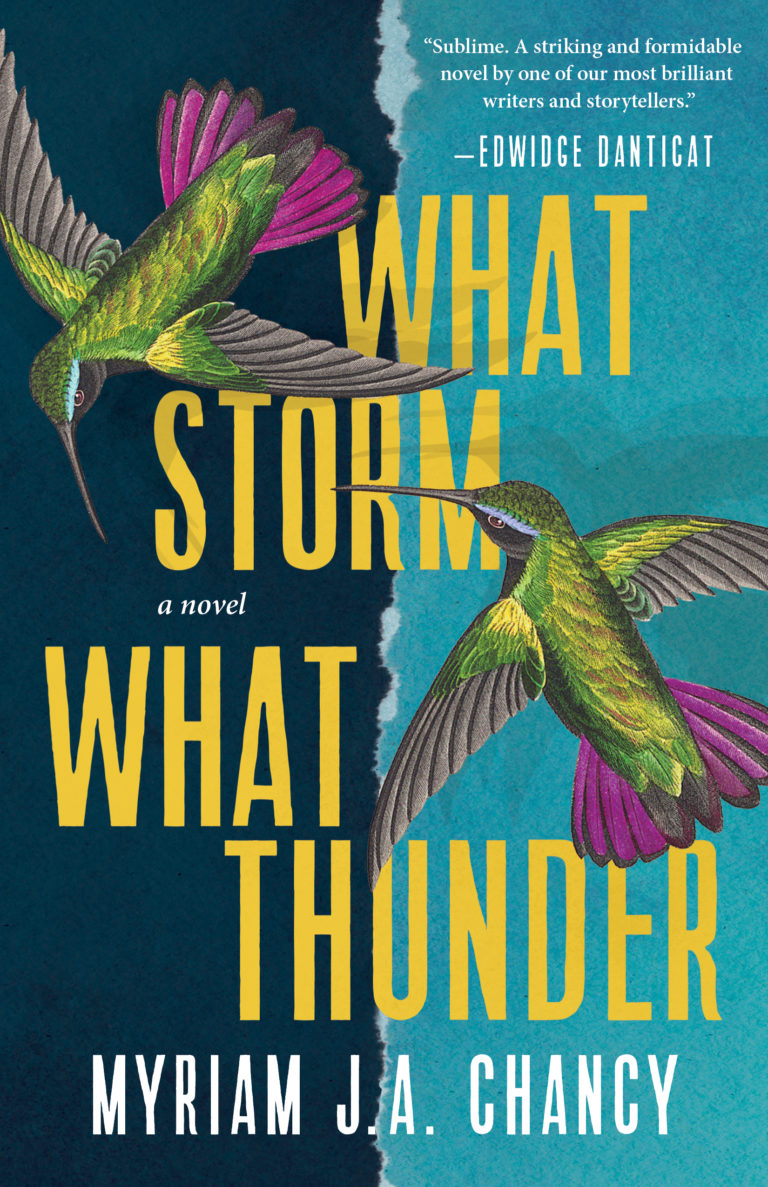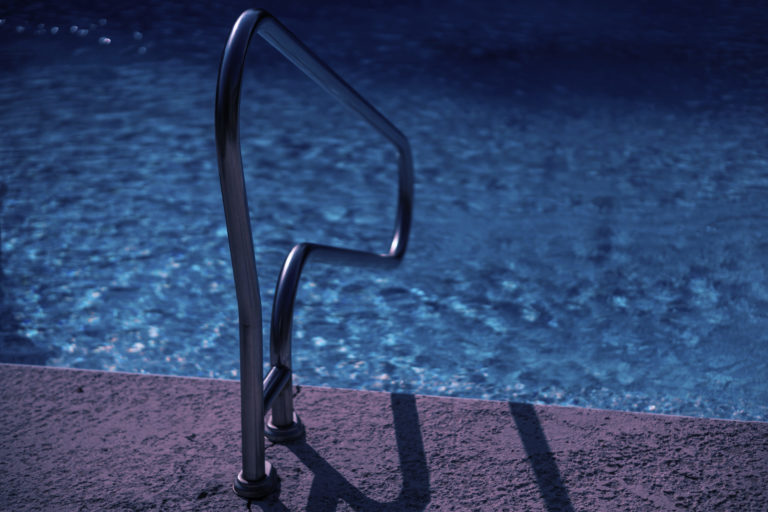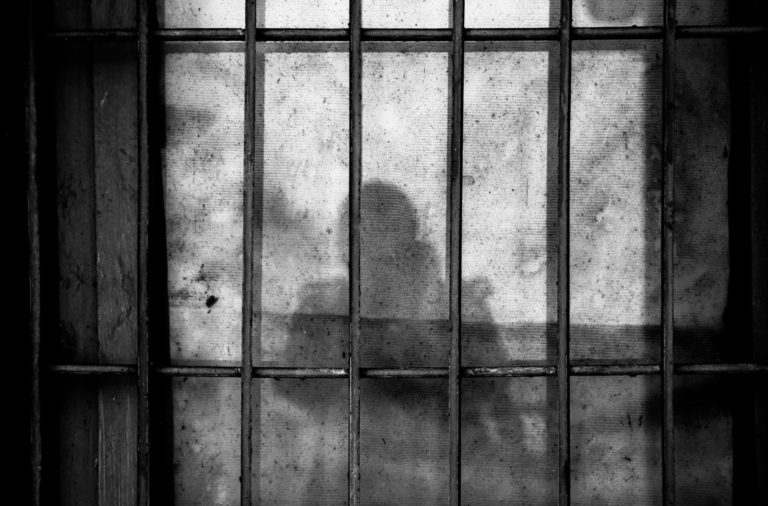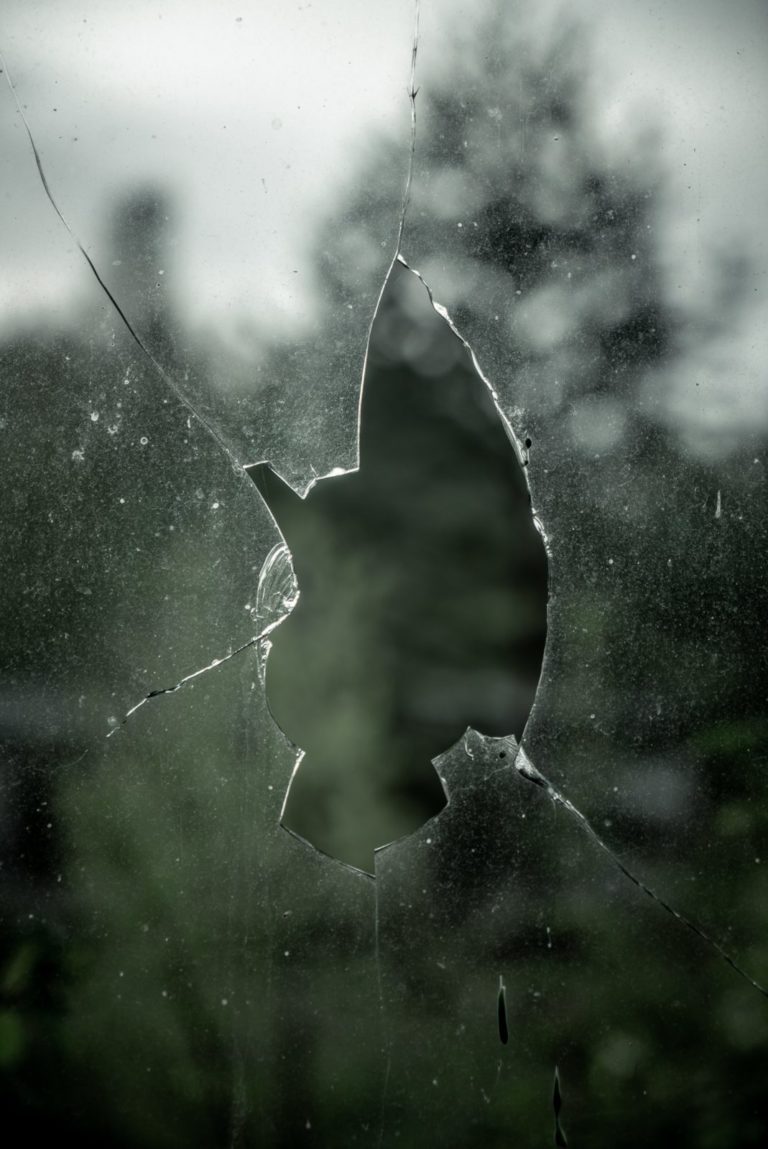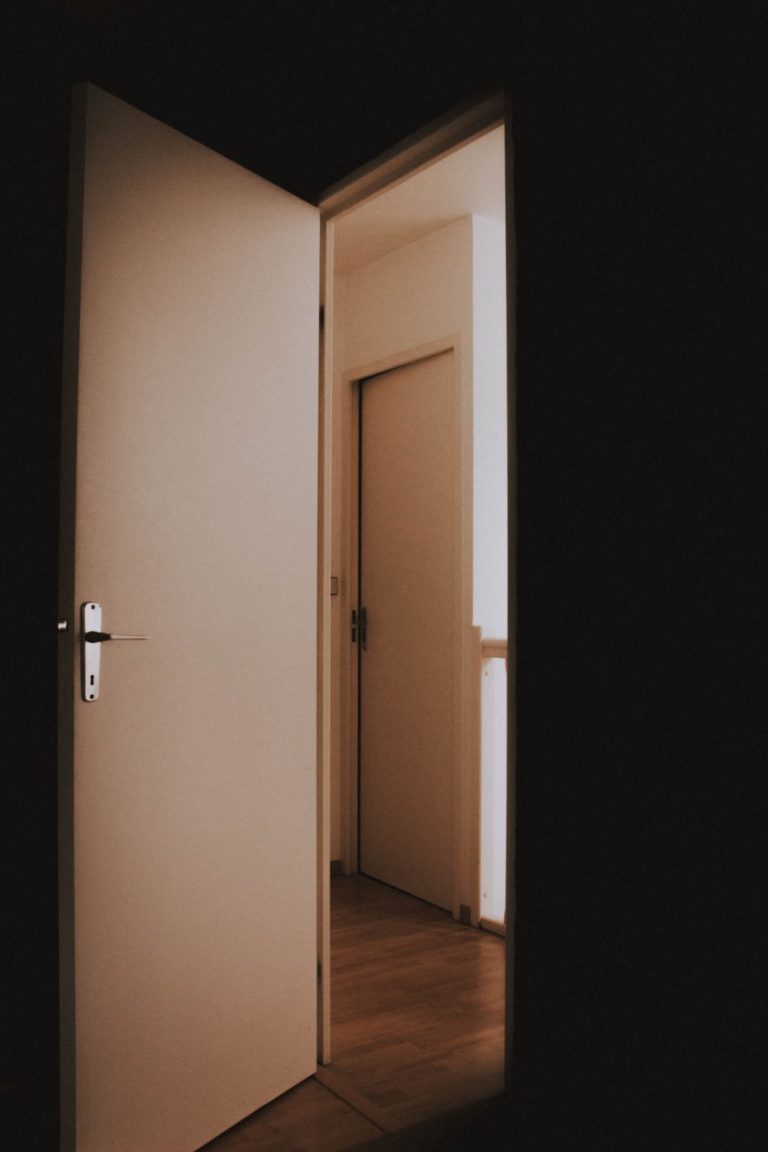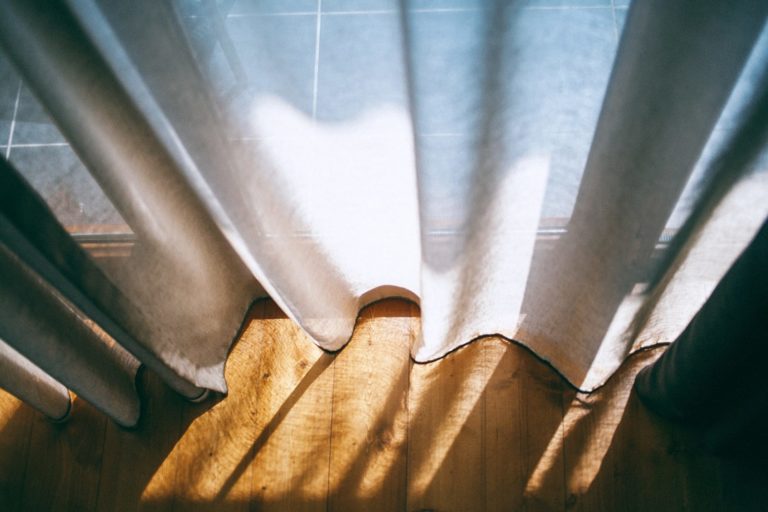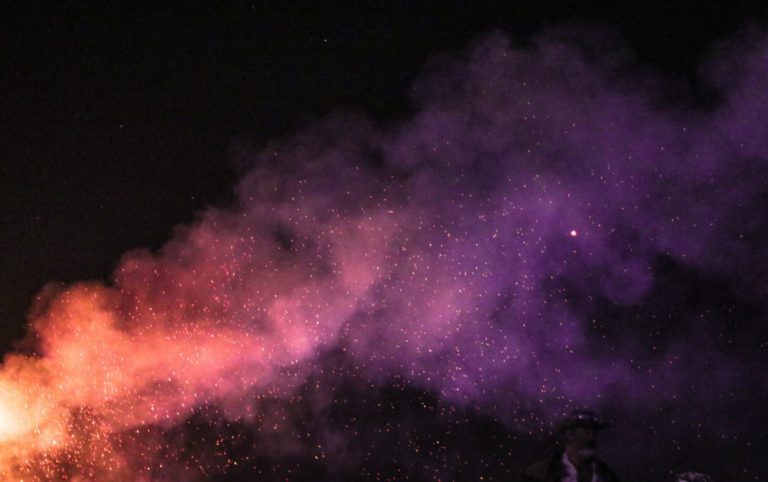It’s worse than dating, I told Kate. Every band you join, every job you take, it’s always the same: That first awkward jam, feeling each other out, trying to play it cool—and then at the end of the night,Hey, great to meet you, man. Sounded rockin’. The deadly pause.So, want to try this again? Both sides wondering, Am I better than this? Can I even stand to be around these bozos? And if you do it a second time, a third, the expectations, the planning. Everyone wants to know if your dreams are their dreams. Yeah, we’ll start off playing the smaller clubs, lay down a demo, work some industry contacts, do the festival circuit, maybe go over to Europe . . . You just nod your head, tell them you’re committed, 100 percent, you want to make this thing happen. But the whole time you’re calculating when to bail. A loser will drag you down quick. You’ve got to keep your options open or—
“So, that’s you idea of dating?” Kate and I had been going about six months at that point, and we were still bright and reckless with one another, still taunting, still teasing. “Were you thinking all that when you met me?”
“Well, don’t take it literally. Bands and girls aren’t exactly the same thing.”
“Oh, fantastic. You always know the right thing to tell me, Timmy boy.”
I told her I loved her, that the moment we met eyes in that dive bar in Rogers Park, all my petty hang-ups fluttered away.
“So we’re just talking every other girl you’ve dated, then?”
“Jesus, no . . . that’s not what I’m saying.” And then to explain—totry to explain—I told her about Billy Sakura and his band Soldier.
* * *
When I first came to the city I was a whore. I’d take any gig I could get. I’d just finished at North Texas—four years practicing my ass off to hold down the drum chair in the one o’clock band—and I was ready to prove I was a pro, that there wasn’t a job out there I couldn’t nail. In truth, I was living for those fire-breathing sessions on the north side—all the cats packed into the Bottle, Hungry Brain, the Velvet, just tripping out all night, orbiting in atmospheres too rarified for common consumption—but good luck trying to make that music pay. “Must be a reason they call it ‘free’ jazz,” my dad said every time I tried to hip him to my music. So, I took the singer-songwriter gigs, the cover-band gigs, the weddings, the cocktail jobs. I was paying my dues. Sleeping in my practice space when I couldn’t make rent, living off Easy Mac and Korean hot noodles—oh, yes, I believed I was doing it the authentic way, that I wasn’t just another white kid from the sticks trying to hang. I believed I was earning my soul, my right to play.
The flyer had been up at Azarello’s, where I went for my equipment, for months:
The Return: SOLDIER. Hard-hitting, shred-head rock-N-roll. Need INSANE drummer. Sticksmen! are you ready to roll out the big guns??? We’ve got songs. We’ve got gigs. All we need is you. Must be 1000% committed. No bullshit, no egos, no posers, no jobbers.
I remembered them, barely—a last-gasp eighties band that had lingered into the nineties like a stubborn stain before being erased by grunge and “alternative.” Soldier—the kind of stuff that mechanics and construction workers cranked before Bears games, that ruled the day back when quarterbacks wore their hair long. They’d had a minor hit somewhere toward the end, one of those lumbering, heart-on-sleeve ballad turns that traded on working-class pride and memories of a girl lost to the ravages of war. “DMZ of Love.” My dad was a child of the seventies, but that song always got him. He used to turn it up whenever it came on WKIS.
Only one tab on the flyer was torn off (the tab the poster had torn off, of course). No one in the city was clamoring for the Return. The city had gone post/avant everything. No one even wanted to think about bands like Soldier. It was just too embarrassing. Maybe I called the number out of some perverse curiosity. Maybe it was because I remembered my dad humming tunelessly along to the guitar solo in “DMZ.” Maybe it was those two beautiful words: “Got gigs.”
* * *
We jammed for the first time in Billy’s garage down in Blue Island. I felt good, calm, collected, in control. “You’ve done your homework, kid,” Billy said after the first couple songs. “Not bad.” I’d found three of their albums in the used bin of a record shop. Hard-driving, heavy blues-rock with the shuffles straightened out, lots of sixteenth-note fills, an odd bar thrown in here and there, some tricky right-hand right-foot ostinato—grist for the practice-room mill. Otherwise: plenty of lead guitar, lots of shrieking and double entendres, Catholic guilt and terror, and preadolescent lizard-brain boner jokes. This music had pogoed back and forth between the American suburbs and the steel towns of northern England so much it had become almost a continent of its own, its citizens loyal, unbathed, and still not convinced the singer from Judas Priest was actually gay.
We played a few more rockers, then Billy ended the audition.
“Hang out awhile, kid. Drink a few brews.” He popped me a can of Bud Light Ice. It was all they drank. Billy, Carlos, and Arne—they’d formed Soldier back in high school—thirty years and three beer-guts later they’d decided to mount a counterattack against aging gracefully. “The three of us are gonna step out for a minute and confer.”
When they came back in, I could tell they were excited. They were playing it cool, but I could tell. They’d tried out a handful of drummers over the last six months, but I was the first one, Billy said, who’d brought “some respect” to their music. He popped another round of Buds. I couldn’t help myself. I stayed and got drunk. We jammed till the neighbors called the cops. Those old dudes could wail. They were exact, reverent; they were like their own tribute band. Loading up my drums at the end of the night, I couldn’t remember when I’d had this kind of dumb fun. “Tim,” Billy said, pushing a bag of clothes into my arms, “here you go.” Inside was a set of olive green fatigues.
“What’s this?”
“You’re infantry, kid. A grunt. Welcome to the band.”
* * *
“You had a costume?”
“Well, that’s why they were Soldier.” Carlos had an air force flight suit and mirrored shades. Arne wore navy dress whites and a doughboy cap. Billy was the samurai. He had a belted robe, rope sandals, his hair back in a ponytail. He played a Flying V he’d had customized back in ’85 to look like a katana sword. “He was Japanese American,” I explained. “Onstage he went by his mother’s maiden name.”
“Jesus Christ, you’re describing the Village People.”
“Well, no, I mean, this was serious. Soldier was mostly serious. That’s what made them great. A straight face was the only way they could pull it off.”
Kate laughed, though not cruelly. It was getting late, and we’d taken our drinks into the bedroom. She was waiting to see where I was going with all of this. We tumbled down on the bed. “This was important to you, wasn’t it?” She reached over and started playing with my hair, the way she always did when she couldn’t tell what I was thinking.
* * *
Before our first gig: a few full-band rehearsals and a lot of time shedding the songs by myself. Billy had some old contacts among the local promoters. We were booked at Champs, in the far suburbs, down where Chicagoland begins to exasperate with its concrete ceaselessness. The place was a cavern, eclipsed only by the Six-Flags-Over-Jesus megachurch down the strip and the old packing plant that squatted in abandonment across the tracks. I was used to dim little coffee shops where skinny dudes sat stroking goatees and uttering the occasional soft unh of approval at the end of solos, a sound that always made me think of them tangled up, sweating in bed with their stick-legged, asthmatic girlfriends.
The crowd at Champs—and, Jesus, was there a crowd—were south-siders, that particular strain of midwesterner whose Polish or Irish blood has thinned to an obscure murmur in the veins that requires them to eat pierogi or corned beef and cabbage once a year and to migrate in droves. But as I looked around, it wasn’t just white dudes: some pudgy Mexican guys, a cluster of Asian cats—friends of Carlos and Billy, I guessed, or maybe butt rock is simply the great blue-collar leveler. Hell, there were even some women in the audience. At the bar, they stood toying with their hoop earrings and spritzed curls, smoking slims. The smell of menthol filled the room. Twenty years melted away. On a dim big-screen TV, Jim McMahon floated a winning pass to Willie Gault and the world-champion Bears did the Super Bowl shuffle.
The lights went down. A spot swept across the stage and came to rest where the four of us stood in staggered silhouette, me struggling to keep from falling to one knee. In place of the flag we raised Billy’s katana/guitar.
“Oh God,” Kate said, “like the Iwo Jima memorial?”
“Well, that was the idea anyway.”
The crowd thundered. Hoots, hollers, and plenty of catcalls. We broke formation, and Billy dived into the riff to “Iron Curtain.” I beat hell out of my drums, four long years of studied restraint erased in the rush of vicarious nostalgia. Billy had made me get a buzz cut, and sweat poured down my face. My helmet kept slipping down over my eyes, and my fatigues, which were a size too small, cut me under the pits. But I was delirious, grinning stupidly, ready to bust out laughing the whole hour and a half. At the end of the night, Billy put five hundred bucks in my hand.
“Comeback city,” he drawled in his thick south-side accent. He knocked a Kool out of a softpack, dangled it under his upper lip. The night had gone as well as anyone could’ve hoped, though I’d seen him pacing in the alley before the crowd started arriving. “That’s some good playing tonight, kid. You’re a real quick learner.” He reached back and let down his ponytail. His thick, dark hair framed his face and spread over his shoulders. He suddenly resembled the guy on the covers of those old albums—fleshily handsome, dissolute, intimidating. “Now alls we got to work on is ‘DMZ.’”
“Why, what’s wrong with it? It’s the easiest song in the book.”
He sucked his Kool down to the filter, looked at me calmly but impatiently. “That’s the one they’re waiting to hear, ain’t it? Couldn’t you see it out there, see them waiting?” Someone came up and asked him to sign a copy of Battle of the Bulge. He whipped off an autograph, sent the guy away with a silent nod. In front of the fans he never broke character. He was inscrutable, stoic, depthless. He was the samurai. You’d never have known that by day he did tax preparation. “That’s the song gotta connect. That’s the one gotta hit. It’s a power ballad. You know what that means, don’t you?”
It wasn’t exactly on the curriculum in Music History. “Sure, I know what you’re taking about.” Sensitive acoustic strumming and lardy fat backbeats, falsetto harmonies, a hammer-on drenched solo soaring like Icarus with his wings dripping off—the power ballad was the part of the show when, for some reason, everyone but the drummer sat on high stools. I pictured a darkened arena, fifty thousand lighters held aloft, bobbing up and down on an ocean of schlock. “My dad used to love ‘DMZ,’” I said.
“Shit, you write a hundred songs, and that’s the one they all remember.”
He said it for the sake of appearances. He wasn’t bitter about being a one-hit wonder. He played all of his songs with pop-eyed urgency, legs spread wide, lips glued to the mic, but for “DMZ,” he bowed his head and submitted, as if the music were coming through him and he was simply the conduit, the sluice, the terrestrial receiver.
“A hundred to one. Those aren’t bad odds when you think about it.”
“Lot better than some guys do.” He inserted another smoke under his lip. “So, how’s this going? This a good fit for you—playing with three old guys like us?”
I hesitated. This was the moment to bow out, no hard feelings. I thought of the cash in my pocket. “I’m having a blast.”
He clapped me on the shoulder, and I felt his gratitude and his approval shiver up and down my spine. “No point if you ain’t having fun!” I was giving him what he wanted, wasn’t I? A little taste of former glory—a short, stiff dram of the stuff that tells us we can go on forever. Billy ordered shots. We raised them up. He winced as he took his down.
We sat at the bar while they closed the place up. Billy talked about his father, who’d been stationed at Okinawa after the war and played electric guitar in the base band, covering whatever was on the jukebox back home for the airmen and their wives: Chuck Berry, Carl Perkins, Link Wray—learning from his dad had been a history lesson on all the hottest guitarists from way back.
I shook my head. “My dad cut town just after I got my scholarship to music school. He went out west. Last I heard he was living with some woman and selling those customized mouse pads with your own photo printed on them. About all he and I ever had in common was our eyes, hair, and Fleetwood Mac.”
Billy put his arm over my shoulders, pulled me in tight. He smelled of beer and Aqua Velva. “Well, that’s a hell of a lot right there.” I guess I sounded more torn up about it than I meant to.
“Yeah,” I said, “they were a beautiful band.”
* * *
We played Rascal’s, Pine Lodge, Jakers, the casinos over in Hammond. We had a draw. The people remembered Soldier. They brought their wives, their girlfriends, their zitty teenage kids. Down here in the crotch of Lake Michigan, they were starved for spectacle. I looked out at the entire front row head-banging, pinwheels of greasy hair, guys pumping their fists, coiling into themselves like they were about to break boards. I took some of my gig money and plunked it down on a new kit, a ten-piece monstrosity that, up in the city, I was ashamed to be seen packing into my van. It had two kick drums. Billy got me new skins for them, one emblazoned with “Sold” and the other with “-ier.” Arne with his electric bass slung low, laboring with it like he was swabbing deck; Carlos leaning back in his stance, kinky hair down to his ass, staring up at the lights through mirrored Aviators, wailing through solo after solo, standing at attention, saluting—how could I forget that time? When I had the helmet and fatigues on, I was someone else. I wasn’t meditating on the difference between postbop and hard bop or the evolution of the sacred naningo rhythm of West Africa; I wasn’t getting up on a coffeehouse stage just to cut some other cat, make him wish he’d never picked up a pair of sticks. Maybe I’d ruined myself with all that practice, all that high seriousness, trying to be Tony Williams, Elvin Jones, Idris Mohammed. “You can only be one person in this world,” my dad always told me. I’d always figured it was just what he said to excuse his fuck-ups.
We were on break one night. I was at the bar with Arne. He was shy, smiled a lot, didn’t say much. But he wore that sailor outfit with pride, without self-consciousness. Over the last couple weeks, I’d come to learn that Arne harbored a secret love for pop classical: “Ride of the Valkyries,” “In the Hall of the Mountain King,” that sort of stuff. We started talking favorite composers. His was Leonard Bernstein. Me, I liked Pierre Boulez.
“Maybe we should record an album with the CSO,” Arne said. He only seemed to be half-joking.
“I always thought there should be a death metal band that only played the Austro-German romantics,” I told him. “They’d be called Mauler. Get it?”
“Nah,” Arne said, shaking his head, “it’d never work.”
Billy was out back in the alley readying himself for the next set. Until the end of the night, he was unapproachable. Carlos came over, and I bought him a drink. He and I were getting to be buddies, I thought. We still had to warm up the conversation a little, compliment each other on our playing. He told me that, technically, I was light years beyond their original drummer, Jens. “You remind me of a Mexican Jimi Hendrix,” I said. Flattery makes me generous, but he really was a fine guitarist—entirely self-taught, a natural. He had the chops, the ear; he even still had the hair. In his genre, he could’ve played with pretty near anyone.
“Billy’s been riding me,” I confided in Carlos. “Says I haven’t been playing ‘DMZ’ right.” Fifteen gigs in, and apparently I still wasn’t getting it. Professionally, I was irked.
“Don’t worry about him. He’s a perfectionist. He wants it be like it was, acts like he’s happy playing these bars, but, hell, he’s having his midlife crisis, like we all are.” Carlos waxed philosophical: “I don’t know, maybe people are digging this because it’s so blatant—three old dudes pretending they’re teenagers. It’s completely shameless. People respond to that. We played Soldier Field back in the day. We opened up for Ratt. That was, you know, our zenith, our Thermopylae.” He killed his beer, tossed his hair off his shoulders with a shake of his head. “They booked us because of the name.”
Even with all their hard work and esprit de corps, Carlos went on, Soldier was never more than a local favorite. Their renown hadn’t taken them farther than Kansas City or Milwaukee, playing daylight slots at Summerfest, pumping up the crowd for the main attraction. At that point, they were all in their thirties. They didn’t have to be the guys who hung out with movie stars and dated supermodels. They could be the guys who hung out with the Bears’ kicker (and sometimes even the defensive line), who dated the gals who worked the auto show and made appearances for Bud Light Ice, who maybe, after a few years, asked one of those gals to get hitched.
“We were kinda proud of what we’d achieved, you know? Maybe that’s why it was so hard for Billy to take.”
Just after the big news came, the incredible, pop-the-champagne-and-dance-on-tables-till-the-cops-show-up news—they’d been tapped to go on a nationwide and European tour as part of the lineup that had played Soldier Field—Billy’s wife, Denisa, held the little cardboard tube up to the bathroom light and watched it turn blue. It was the inevitable turn of events. To his credit, Billy made the right decision; he was going to be there to see little baby Shayla come into the world, learn to crawl, learn to speak, play her first power chord. Hell, he wasn’t going to be out there committing ritualseppuku at the end of every set, night after night, just to please an arena’s worth of fans who weren’t even there to see them anyway. Soldier canceled the tour, split the band fund four ways. Billy put the cash toward a down payment on the house in Blue Island.
But there were complications. Little baby Shayla never left the hospital; then Denisa got real sick afterward. As Ratt rampaged across the Eastern Seaboard and Europe, Billy was burying his daughter. “I think Billy got caught up in a certain amount of regret,” Carlos told me, “maybe a certain amount of resentment too.” He should’ve known better, but it was a tough time. It got pretty bad between him and Denisa, and when the two of them finally made a clean break, Carlos and Arne were already raising their own kids, Jens was back in Stockholm, it was 1990, and Soldier was just a faint, stale odor on the shifting winds of local adulation.
“But then you had ‘DMZ.’ That was a triumph, right?”
“For us, that was really more a farewell thing. Billy had a few songs lying around. We flew over and hooked up with Jens for a month. ‘The Sweden Sessions.’ We barely broke even on that record. For Billy,” Carlos said, “the idea was always we were gonna come back. I never really believed him.” He raised a shot, drank it down. “But what else you gonna do when the cars are paid off, the kids are in school, and you’ve redecorated the house five times already? I mean, Why the fuck not, right?”
I took my shot, winced. “Right.”
As we stood leaning at the bar, a guy came in. It was that time of the night when the doorman, already drunk, would let anyone in. The guy looked like a Soldier fan. He wore camo pants and a sleeveless undershirt. Over his shoulders, a bright green python was draped like a mink stole. As he came through the crowd, people parted to make way, then gathered in to pet it. “They like a spectacle,” I said to Carlos. The python’s head bobbed near the guy’s mouth as people stroked its shiny scales; the guy leaned over to feel its forked tongue flicking over his stubble. Someone must have said, How long is that thing anyway? because the guy laid it out on the pool table, grandly, to demonstrate its length and girth. Of course the first thing it did was disappear down the corner pocket, and then all the numb-nuts who’d gathered round had a contest of intellects to see who could get the damn thing out. No one wanted to stick their hand in the pockets for fear of getting bitten. Someone suggested slotting some quarters in and racking up a game—that would get the fucker out of there PDQ. The guy looked wounded, truly bereft. He had some snake food out in his truck and tried to coax his baby out with a few pellets smeared on the butt end of a cue. The bartender came over with a flashlight and, holding his head away, tried peering down each of the pockets. It looked like they were going to have to take the whole table apart. But, then, just as we were about to play our second set, the snake’s tiny head popped out—from the same pocket it had gone into—looked this way and that like a periscope hunting a convoy. The guy in camo pants leaned over; the snake flicked its tongue out, feeling for his chin; the guy grabbed it behind its head and yanked it out of the pocket.
“Fuck me,” I said, shaking my head, “what a fucking hick.”
Arne stood there, aloof in his sailor suit. “Ah, that’s just my cousin,” he said.
The snake coiled around the guy’s neck like it would choke the life out of him, but he didn’t flinch; that was the trust between them, that was the—
* * *
“I think you’re getting a little sidetracked with this snake thing.”
“No, no, the snake is the entire point. I mean, this guy loved his snake, unreservedly. Pure devotion.”
“Well, everyone has to find meaning somewhere.”
“He loved the band too. He came to our next five shows.”
Kate and I started fooling around. I unknotted the drawstrings of her pajamas. She batted my hand away. “At ease, Private.”
“Hey—”
“That’s sad, about Billy. Billy Sakura,” she said, trying his name out.
“I find it kind of inspiring, actually. He never gave up.”
She rolled her eyes. “Oh, give me a break.”
We started stripping off our clothes. Kate kissed me roughly, but then she pulled back. “Say we go the distance, you and me. Someday I might ask you to get a steady job. Be a band teacher maybe. What would you say to that?”
I was annoyed. This wasn’t right. This was supposed to be the kind of late-night intimacy where you tell your lover a sad story and expect to be either absolved of your minor sins or to be fucked, hopefully both.
“I’d consider reasonable arguments.” I thought we might still be joking around, so I threw out an improbable: “I’d move to Nashville, put on a cowboy hat, do studio work.”
Kate’s mouth turned down. She was upset. “Why do you always think you’re missing out on your real life?
“Because I’m never satisfied. That’s why you love me, right?”
She didn’t answer. She tucked herself under the covers, away from my searching fingers. “So, what happened?” she said. “Where is this going anyway?”
* * *
A few weeks after the snake, I drove down to Blue Island for rehearsal.
“Where’s Arne? Where’s Carlos?”
“Just you and me today.” Billy had his acoustic out. He was sitting on a high-backed barstool strumming lightly, meditating. “Thought we’d work on ‘DMZ.’”
He began to play the song, softly, as if to remind himself how it went. I sat behind the kit and played some warm-up exercises on the fleshy part of my thigh, Swiss triplets: LRRLLRRL RLLRRLLR.
Billy began to sing. His voice had gone ragged from all those years screaming over amplifiers. Still, it had a gruff sort of sweetness, a barrelhouse melodrama. Tough and theatrical—that was the power ballad formula.
The first verse was a grab bag of metaphors, with lines from an antacid commercial: “Something is happening / deep down inside.” Then the fog of war drifted in—distant rumbling, a flickering blaze on the horizon, a lone cry of anguish (far-off electric howls from Carlos). A girl is running, a beautiful girl with her long, dark hair strewn out behind her. She has been crying, but cries no longer. She stumbles, she stands again. This was the part of the song when my dad always reached over to turn up the volume, when he went flush and seemed a little stricken. (After all, who values defiance more than those who are already beaten?) In a song like this, it was unusual to hold out so long for the chorus. The girl was still running, still striving, survival her only dream; she was there, almost there, safety, warmth, her lover’s arms not just a taunt but a promise. And then—“The sound of drums and guns will shake the earth!”—my cue, and I came in on the toms with holy thunder, crashed into the downbeat, and started laying it down with the smiling conviction of a Vegas magician, a gentleman bank robber, a serial killer, a lying politician, utterly drunk on my own mastery.
Billy stopped playing. He sat there looking at me. “Maybe we should do a couple beers first.” He went to the fridge and brought out two cans. He moved his guitar from the stool to its stand, put the cold can to his forehead, sighed. “How about a tour?”
“I’m open to it, you know, if the money’s right.” I wasn’t sure a tour was the best thing for Soldier at this point, or how long these guys would even hold up on the road. It seemed like Billy was being a little wistful, like he was taking this comeback thing a little too seriously. There was no sense in disinterring the past, trying to make it walk again. It was dangerous, foolish. Still, I tried to be equable. “Hell, I’d do it for the professional experience.”
“I meant a tour of the house.”
“Oh, sure.”
I’d never been inside Billy’s home, always the garage. “So, this is the downstairs.” A lot of time had passed; you could just barely see a woman’s touch in the faded curtains, the harvest-themed tablecloth, the fancy stenciling on the baseboards. The living area had long ago lapsed into functionality: multitiered rack of stereo equipment, a bookshelf jammed with old LPs, a weight bench with tax law manuals stacked on it. Billy grabbed another beer. He was like a cracked radiator—just keep adding fluid.
“I don’t mind doing taxes,” he said. “Keeps me sharp, all that math. Math and music—Siamese twins, right? Anyways, it gives me plenty of time to practice guitar. I’m my own boss.”
We padded up the carpeted stairs in our socks. The ceilings were high, the hallway narrow, walls the color of mayonnaise. There was a landing, a Jacuzzi bathtub, a skylight. Faux grand. Twenty years ago, they’d built a zillion of these houses. For a lot of people, this was the exact shape and dimensions of their dreams. If my dad had ever been able to hang on to a job longer than six months, I would’ve grown up in a house just like this.
In the master bedroom: a huge TV, waterbed, guitars hanging from pegs—prototypes of the katana. There didn’t seem to be a single picture in the whole place. Under the guitars, a low shelf with cassette tapes in chronological order—demos—and several larger square boxes of reel-to-reel tape, labeled “Sweden,” “Bulge,” “The Gods of War,” “Cannon Fodder,” and “unreleased.” There appeared to be a lot of unreleased material.
I had to admire the simplicity of his life, the single-mindedness. After tax season, he had nothing to do but spend all day with his guitar and his four-track recorder. We went back out into the hallway. There was one last room, the only door that had been closed. Billy led me inside. The shades were drawn, but in the dim light I could see a pile of stuffed animals, a mobile of stars hanging from the ceiling, a high-railed crib still made up neatly. The room smelled not of dust but clean, fresh, like someone had put down carpet stuff. As my eyes adjusted, I saw among the stuffed bears four human dolls, handmade and a little misshapen, but faithful in likeness: a sailor, a fighter ace, a GI, a samurai with long, flowing hair.
“I was always pretty good with needle and thread,” Billy said softly. If not for his meat-hook accent, those words might have been beautiful. I picked up the GI, held it up next to me. “Any resemblance?” I said.
“Must have known you’d come along one day.”
We went back downstairs and ran through “DMZ” together. In jazz, a ballad is all restraint. You play the melody so it sounds a little shaky, a little battered. You work, you study to be older, wiser, so that you can play it from a distance, thirty years at least. Jazz knows that experience trumps all, that you take the blows as they come. “DMZ of Love” was five and a half minutes of endless protest, of standing at the crumbling edge of the ocean under the bright sobbing moon, howling and tearing your hair. The girl climbs to the top of the cliff, looks across the water, turns to survey the wreckage behind her, the impossibilities she has surmounted. “And though the guns have faded,” Billy sang, “still she roams and battles on. / Maybe one day we’ll meet her / in the land beyond the sun.” We played it again and again, just the two of us. I played with my eyes closed, made it look like I was dredging my soul. One last time—I went for the final chorus, threw everything at it, Billy played the five-note melody, the last note rang out forever in that echoing garage. I opened my eyes. He was looking at me. I nodded my head slowly, meaningfully, and so did he. “Like that,” he said softly. “Just like that.”
I felt nothing, absolutely nothing. All I was thinking was LRLLRR LRLLRR and RLRLRRRLLL RLRLRRRLLL and RRRLLL RRRLLL and, of course, LLRRLLRR LLRRLLRR. I packed up my equipment. Just as I was leaving, Billy drew something out of his pocket. “Here.”
“What’s this?”
“Your stripes.” He paused. “Sergeant.”
I took the patch from him. It, too, was hand-sewn.
* * *
“And then what happened?” Kate said. I’d fallen quiet; I didn’t feel like telling the story anymore.
“I had to quit. It was getting too depressing.”
“But you got there, right? You finally played the song. You gave him what he wanted.”
“Yeah, but I quit.”
I couldn’t even bring myself to do it in person. I called Billy up, gave him the one excuse I knew he’d go for. “It’s my dad. He’s sick.” I mumbled something about a heart condition. “I’m going out to Oregon to see him.”
Billy didn’t answer for a moment.
“Family comes first,” he finally said.
“I can get you a sub. I know plenty of guys who can nail this job.”
“No jobbers,” Billy said. “This is a band.”
Kate started playing with my hair again. She thought this was the point of the story, the thing that had kept me up nights. “Well, Soldier wasn’t you,” she said. “You’re a jazz musician.” When she saw that I wasn’t going to accept her assurances so easily, she said, “So, will you ever be satisfied? That’s what we’ve been talking about, right, you and me?”
“Yeah.” I hesitated, fatal hesitation. “You and me.” I got up, went over to the stereo, put a record on. Sonny Rollins, The Bridge. “I love you,” I said. We’d only been saying those words for a week or so. They still seemed foreign to me, and I spoke them uncertainly, as if I might unknowingly be making a fool of myself. We went to bed and lay in each other’s arms and listened to Sonny’s tenor blowing disconsolately over “Where Are You?” while Jim Hall fretted coolly in the background and Ben Riley caressed his snare and cymbals. I couldn’t help humming along.
“Don’t go disappearing into this record like you do with your drum exercises. Tell me what you were going to tell me.”
I looked her right in the eyes. “I guess it’s just like anything. You have to find the right fit.” We kissed again. “Just tell me you’re not going to hurt me.”
“No guarantees.” But she saw that I needed more. “If you don’t hurt me.”
I reached up, turned off the light, and pulled her to me.
* * *
I wasn’t telling her the out-and-out truth. After that last rehearsal, I did play a few more gigs with Soldier, still trying to work myself up to having to break Billy’s heart.
We were back at Champs. It was just another night. I was feeling loose, going for things I wouldn’t normally, shanking a few of them. We played “Cannon Fodder,” “Iron Curtain,” “Deployment Princess (You’re Still Ugly Back Home).” I was riding on muscle memory; I had the entire set under my hands, and my helmet stuffed with newspaper so it wouldn’t slip. The lights went down. Billy took up his acoustic. I focused on that one thing, that five-note melody. Carlos’s guitar howled in the background, but Billy raised a hand to say, Another time around. We sat there, vamping, letting the atmosphere get heavy. Billy never took his eyes off me. He knew. He knew I was leaving.
We played the verse and the chorus, and then, finally, the solo. Arne closed his eyes, concentrating on the bass line, the fat strings rumbling under his delicate fingers. Carlos leaned back, his hair glistening with sweat, his guitar climbing and climbing, floating up there like a rocket aiming for heaven. Billy came off his stool and crouched low, cradling his acoustic.
In the crowd, a tiny, flickering light bumped my concentration. I faltered for a moment and looked down. I met Billy’s eyes again, but his told me, No, out there, look out there.
In the darkness, the crowd swayed together, lighters held aloft. Another tiny light sparked, then another. One by one they all came on.
